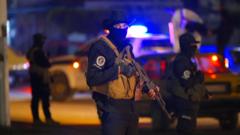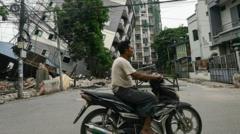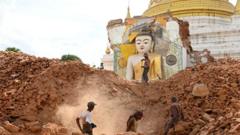The recent arrest of Ataullah, leader of the Arakan Rohingya Salvation Army, has illuminated the persistent challenges facing the Rohingya community in Bangladesh, where generations remain trapped in refugee camps due to ongoing violence and persecution.
Arrest of Rohingya Armed Group Leader Signals Ongoing Crisis in Bangladesh

Arrest of Rohingya Armed Group Leader Signals Ongoing Crisis in Bangladesh
The commander of the Arakan Rohingya Salvation Army has been arrested, bringing attention to the plight of over a million Rohingya refugees in Bangladesh.
The Bangladeshi police announced this week the arrest of Ataullah, the leader of the Arakan Rohingya Salvation Army (ARSA), an armed group representing Myanmar’s persecuted Rohingya Muslim minority. The apprehension took place in Narayanganj District near Dhaka, where Ataullah, along with nine other suspected insurgents, was charged under the nation’s antiterrorism laws.
Ataullah's arrest on Monday is noteworthy given ARSA’s role in past coordinated attacks on security forces in 2016 and 2017, which triggered a brutal military response from Myanmar. This response led to widespread atrocities against the Rohingya, including mass killings and the destruction of homes, prompting what the United States has categorized as genocide and resulting in a rapid exodus of over a million Rohingya refugees to neighboring Bangladesh.
Currently, these refugees reside in ill-equipped tent settlements, with many in the world’s largest refugee camp in Cox's Bazar. The ongoing violence and clashes among various militant factions, including ARSA, exacerbate the misery of the Rohingya population and contribute to a growing radicalization among desperate young individuals within these camps. As the humanitarian crisis continues, the international community watches closely, hoping for a resolution to this complex and tragic situation.






















